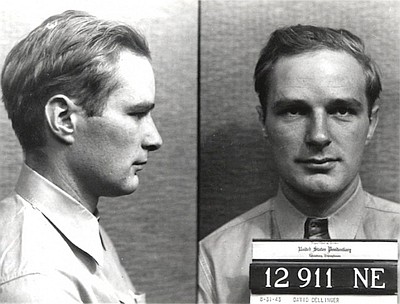The Trial of the Chicago 7 — and Sorkin’s miscarriage of justice
by Rob - March 7th, 2021.Filed under: Reviews.

We recently watched the new movie The Trial of the Chicago 7 (we watched the DVD I’d been sent for Writers Guild of America awards consideration, but it’s also on Netflix).
Written and directed by Aaron Sorkin, it’s a socially relevant courtroom drama right up there with Judgment at Nuremberg, To Kill a Mockingbird, Inherit the Wind, and Sorkin’s own previous A Few Good Men in quality. Absolutely gripping from beginning to end.
After watching it, I immediately read the 160-page script. It’s extraordinarily sparse in terms of stage directions or character description, and there’s nary a parenthetical, such as (sarcastically) in it. The standard rule-of-thumb is one page of script per minute of running time, but the movie is only 130 minutes. The extra 30 pages are indicative of just how packed this script is with dialog, all with Sorkin’s trademark sharpness and wit.
Sacha Baron Cohen is getting most of the awards attention for his spot-on portrayal of Abbie Hoffman, but really the entire cast is excellent. For me, other outstanding performances were Yahya Abdul-Mateen II as Bobby Seale and Sir Mark Rylance as defense attorney William Kunstler.
Great work is also done by Eddie Redmayne as Tom Hayden, Joseph Gordon-Levitt as prosecutor Richard Schultz, and Michael Keaton as Ramsey Clark.
Highly recommended — with one big caveat. Aaron Sorkin’s script for The Trial of The Chicago 7 takes some liberties with the facts — more so in the second half than the first. But there’s one I can’t forgive.
SPOILER ALERT!
It’s this scene in the courtroom involving defendant Dave Dellinger, taken from the screenplay:
DAVEThat never happened. Dave Dellinger was a pacifist, a man devoted to peace, a man who embodies Gandhi’s principles of nonviolent opposition. Dave Dellinger was jailed during World War II as a conscientious objector. Sorkin skips over this, having a character saying only that Dave “sat out World War II” — he went to jail for his beliefs; that’s his mug shot above from being arrested for failing to appear for the draft.
(quietly)
You’re a thug.JUDGE HOFFMAN
Did one of the defendants speak?DAVE
(standing)
I did. I said you’re a thug and you are.TOM
(quietly)
Dave —JUDGE HOFFMAN
Please sit, Mr. Dellinger.DAVE
If we’re guilty, why not give us a trial? If we’re —JUDGE HOFFMAN
Marshals, seat the defendant.DAVE
If we’re guilty, as you clearly decided —JUDGE HOFFMAN
Watch yourself.DAVE
–decided we were a long time ago —
(to a MARSHAL)
You don’t need to grab my arm.
(to JUDGE HOFFMAN)
If we’re guilty, then why not give us a trial? I’ve sat here for six months and watched you —
(to a MARSHAL)
I’m asking you not to grab —But A DIFFERENT MARSHAL grabs him. DAVE throws his arm off, then punches him in the face, sending the MARSHAL to the floor.
It all happened too fast.
The GALLERY and the DEFENDANTS jump up as the MARSHALS jump up as DAVE’s taken down by the other MARSHALS then dragged to his feet with his arms twisted behind him.
JUDGE HOFFMAN
Take him outa here. Lock him up!As DAVE gets handcuffed, he looks to the back of the courtroom where his young son is looking at him.
As the real-life Dave, who had been an ambulance driver during the Spanish Civil War, said, “After Spain, World War II was simple. I wasn’t even tempted to pick up a gun to fight for General Motors, U.S. Steel, or the Chase Manhattan Bank, even if Hitler was running the other side.”
I’m a pacifist myself. I believe strongly in nonviolence. But Sorkin does Dellinger and all pacifists a great disservice here. He suggests that it’s all just talk, all just posturing, and when push quite literally comes to shove, a pacifist’s mask will drop and he’ll come out punching. And that’s just not true. A principled person lives — and, if need be, dies — by his or her principles. Dave Dellinger deserved better than Sorkin gave him.
On the “pushed to their limits” thing, I actually teach that when I teach writing, but the example I use is Mary Richards from the old Mary Tyler Moore show, who never swore and always called her boss Mr. Grant, until one day, pushed too far, she stormed into his office, slammed the door behind her, and shouted, “Damn it, Lou, I thought we were friends!”
But the difference is she let her guard down and revealed her innermost self. That’s what happens when you’re pushed to your limits. You don’t change who you are, you reveal who you are. And no matter how hard David Delligner was pushed, his innermost self was a pacifist — and that scene never would have happened with that character.
Robert J. Sawyer online:
Website • Patreon • Facebook • Twitter • Email

